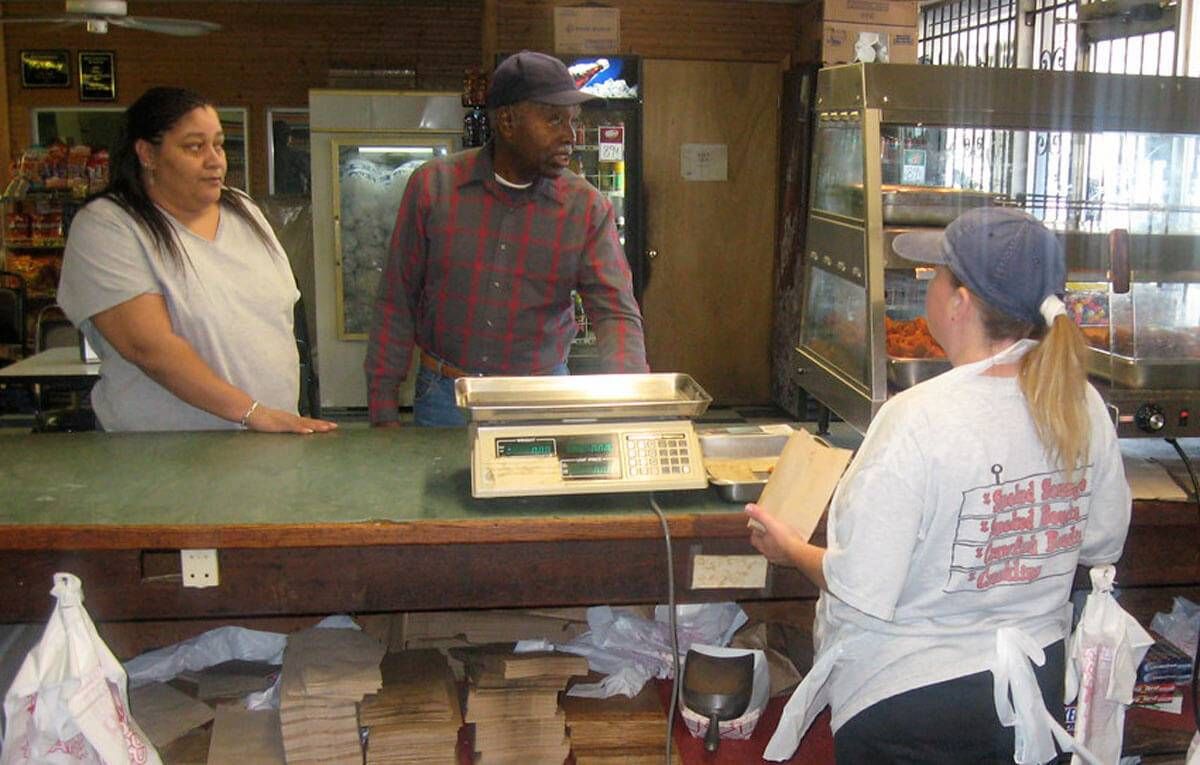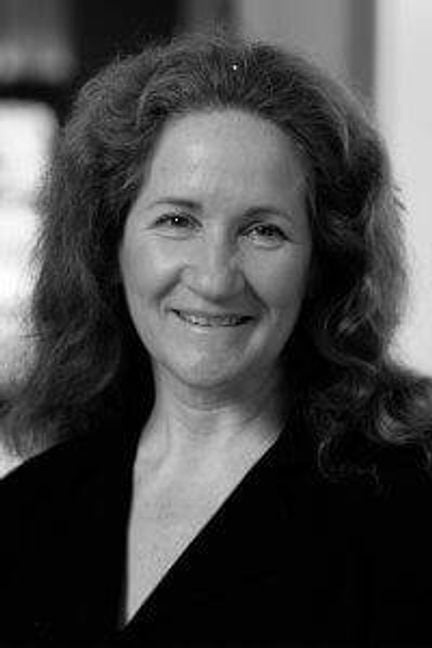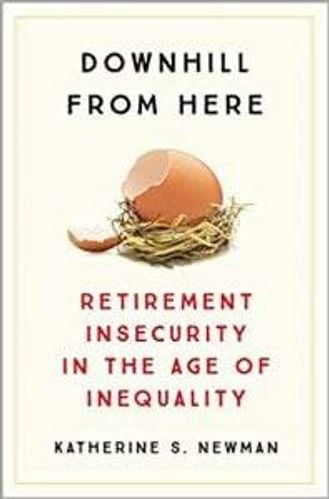Retiring on Next to Nothing in America
The 'Downhill From Here' author's report on a poverty-stricken Louisiana town
(In her blistering new book, Downhill From Here: Retirement Insecurity in the Age of Inequality, sociologist Katherine S. Newman paints a bleak picture of the state of retirement in America. The book comes from two years of analysis and 300 interviews her colleague Rebecca Hayes did, criss-crossing the country, speaking with retirees. It’s essentially a follow-up to her landmark book, Falling From Grace: The Experience of Downward Mobility in the American Middle Class. In this excerpt, Newman focuses on poverty-level retirement in Opelousas, La.)

A town of about 18,000, Opelousas is a 30-minute drive from the nearest big city, Lafayette. It is one of the poorest cities in Louisiana, a state saddled with extremely high levels of income inequality. It is harder to pull out of poverty in a state like this, since people here tend to “stick” at the opposite ends of the income spectrum: the poor stay poor and the rich stay rich across the generations.
The paucity of economic opportunity has left its traces in the lives of the elderly, which is why Opelousas is the best place in the country to examine if we want to know what it means to retire into hardship.
Beyond Social Security, survival depends on what family and church will provide, because employers don’t offer the benefits that more advantaged workers have: pensions or 401(k) plans, health insurance, dental benefits.
A Hard Place to Be Poor
In Opelousas, where over 75 percent of residents are African American, annual per capita income was only $15,489 in 2017, and 43 percent of the population was living in poverty. Opelousas is a hard place to be poor. A loaf of bread costs 10 percent more than it would in a state that doesn’t tax food.

According to the most recent census, 9 percent of the U.S. population over 65 lived in poverty in 2010. But that year, the Opelousas-Eunice area had an elder poverty rate of 28.4 percent, the highest proportion of people over 65 living below the poverty line in the United States.
Patterns of segregation, the poor quality of schools left for black residents and racial animus sealed the town’s African Americans into low-paying occupations. They were destined to be the working poor, because they were never provided with opportunities to do anything else.
Farming and service industries are notorious for low wages and high turnover, and people in them spend most of their lives in working poverty. It doesn’t matter whether they are black or white; when it comes to retirement, virtually everyone is at a loss in Opelousas.
How Retiring Is Difficult Here
Arnold Ledoux is a good example of the ways in which a life in farming, with all of its hardships and insecurities, translates into a difficult retirement.
Ledoux is 78 and lives in public housing for the elderly poor. His parents were farmers who grew cotton, sweet potatoes and peanuts. He went to school in Opelousas up to the 11th grade, but had to drop out to manage the farm when his father fell ill. There was very little money to spare, especially after Hurricane Audrey ravaged Opelousas in 1957. “That hurricane took a big toll on the farm,” Ledoux remembers.
They couldn’t afford to repair what was lost. “After then, I didn’t have no kind of money to continue.” With no experience to speak of outside of farming, his options were limited.
“Yeah, so I went to work-by-the-day. A laborer,” he said. Ledoux took unskilled jobs in construction, working out of Baton Rouge, building freeways for a private company. The trajectory from this job to a retirement in poverty was almost inevitable. Arnold had no real options for a better deal.
The elderly black residents of Opelousas generally stop working when they cannot go on any longer. Some are too ill or exhausted to work; some have a disability that makes it impossible to continue; some have to quit working to take care of a family member. They have no savings to cushion them.
Stopping Work Due to Exhaustion
These conditions would be hard even for people who are old enough to qualify for age-related benefits like Medicare. Unfortunately, the working poor are often so beat by their early 60s that they must stop work a good five years before they can access the health insurance they need.

Tapping Social Security at 62, as many then do, exacts a high cost. It is the earliest allowed point for accessing benefits, so the monthly payments are cut dramatically to make up for what, in theory, will be a longer time that the beneficiary receives them.
The oldest residents face a particularly hard situation because they live in Louisiana, one of the tougher places to access benefits that flow more easily to low-income elders in the North and the Midwest.
Federal Assistance Limits
Federal assistance comes to the fore because a high proportion of Opelousas seniors, particularly those whose jobs were physically strenuous, are disabled. Not surprisingly, they also suffer disproportionately from the chronic diseases and injuries that accompany poverty, especially heart problems, diabetes, and other obesity-related disorders.
Many elderly Opelousans rely on the Supplemental Nutrition Assistance Program (SNAP), formerly known as food stamps. SNAP helps to attack food insufficiency, but for the poorest of the poor hunger is still a problem.
Said Annabel Carter, an 82-year-old cancer survivor: “I don’t get nothing. Nothing at all on food stamps.” She receives about $750 a month from Social Security to support herself and her two grown, but disabled, children, and some $200 of that goes for groceries.
Subsidized housing is another crucial federal benefit for very low-income, old people in Opelousas. A few apartment buildings in town are part of a federal Housing and Urban Development (HUD) program called “Section 202” where the rent is very modest. However, this is perhaps the last generation to benefit from it. In 2012, Congress discontinued all new construction on Section 202 housing.
The High Cost of Housing
Housing is nearly always the most substantial cost for low-income retirees. Nina Rochefort, who lives in her family home, knows the burden that home ownership places on the poor. She had to take out a second mortgage to fix her house before she could move in, since it wasn’t habitable otherwise. Her monthly mortgage payment is $342, and at 64, she still has 20 years left to go on it.
Many poor elders turn to predatory payday loan companies to make ends meet. Because so many are “unbanked,” they have no other source of credit. But the payday loan interest rates are brutal.
The end of the month is a tight time for most poor elderly people in Opelousas. Food stamps and Social Security checks arrive on the first and the third of the month, and for a time thereafter, everyone eats better: meat, fresh produce, milk and cheese. Toward the end of the month, volunteers at the church “diner” — the soup kitchen — and the food bank see a big increase in traffic, and the quality of the local diet goes down.
How They Feel About Retiring
Betrayal is not the emotion older people in Opelousas feel, even if, in a larger sense, the country has abandoned them from the get-go. They have struggled to stabilize themselves and are proud if they have accomplished that goal. Self-sufficiency, pride in independence and “making do” are the themes they dwell on in talking about their life histories.
For those who are deeply religious, there is comfort in the embrace and fellowship of the church (tragically, local black churches here have burned down recently), and in the support it offers through its nonprofit extensions. It is the leaders of such organizations who more often express outrage at the diminished circumstances of older Opelousans. They recognize that in a country as wealthy as this one, the elderly poor deserve better.
(Excerpted from DOWNHILL FROM HERE: Retirement Insecurity in the Age of Inequality by Katherine S. Newman, published by Metropolitan Books, January 29, 2019. Copyright © 2019 by Katherine S. Newman. All rights reserved.)

